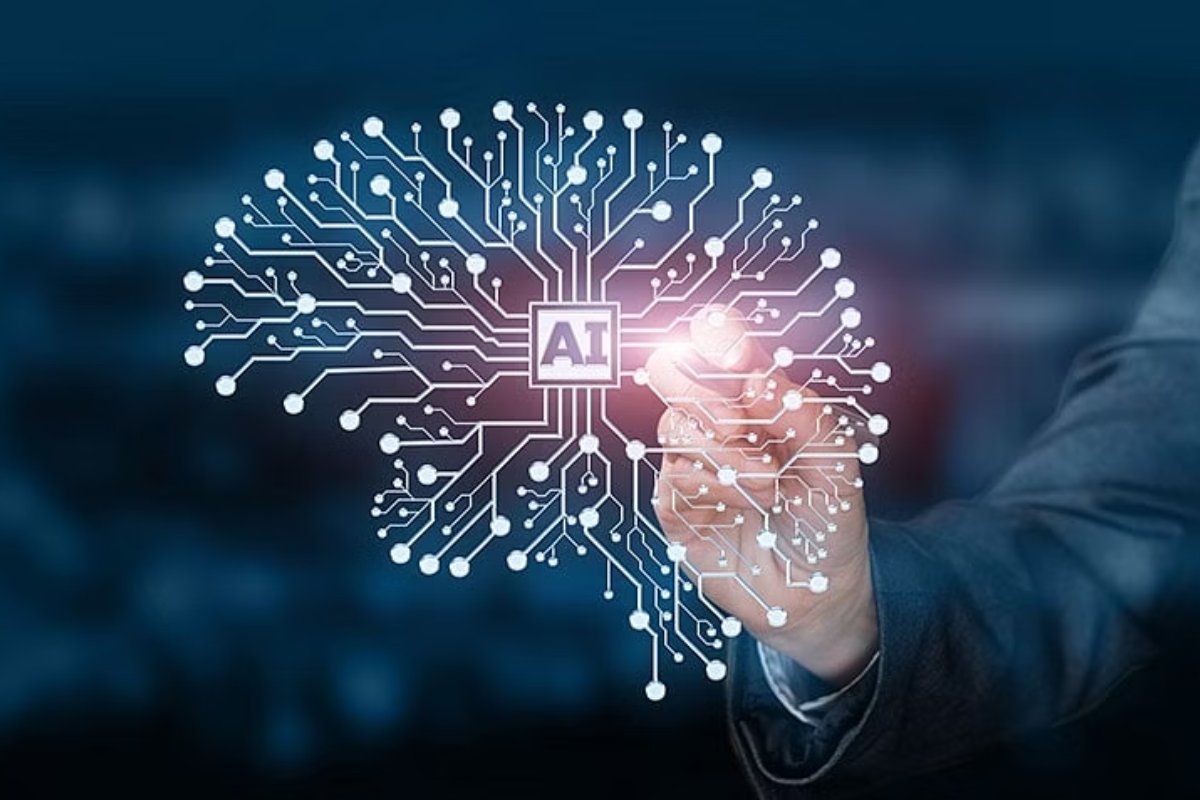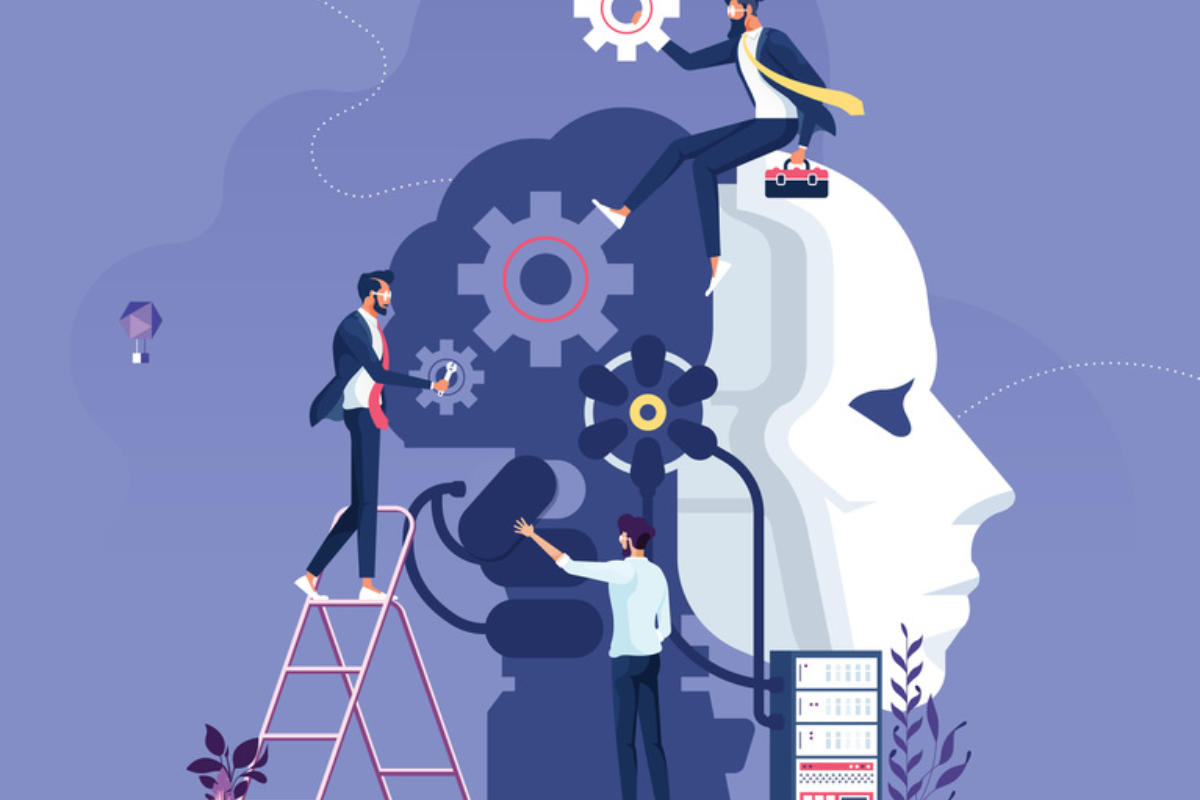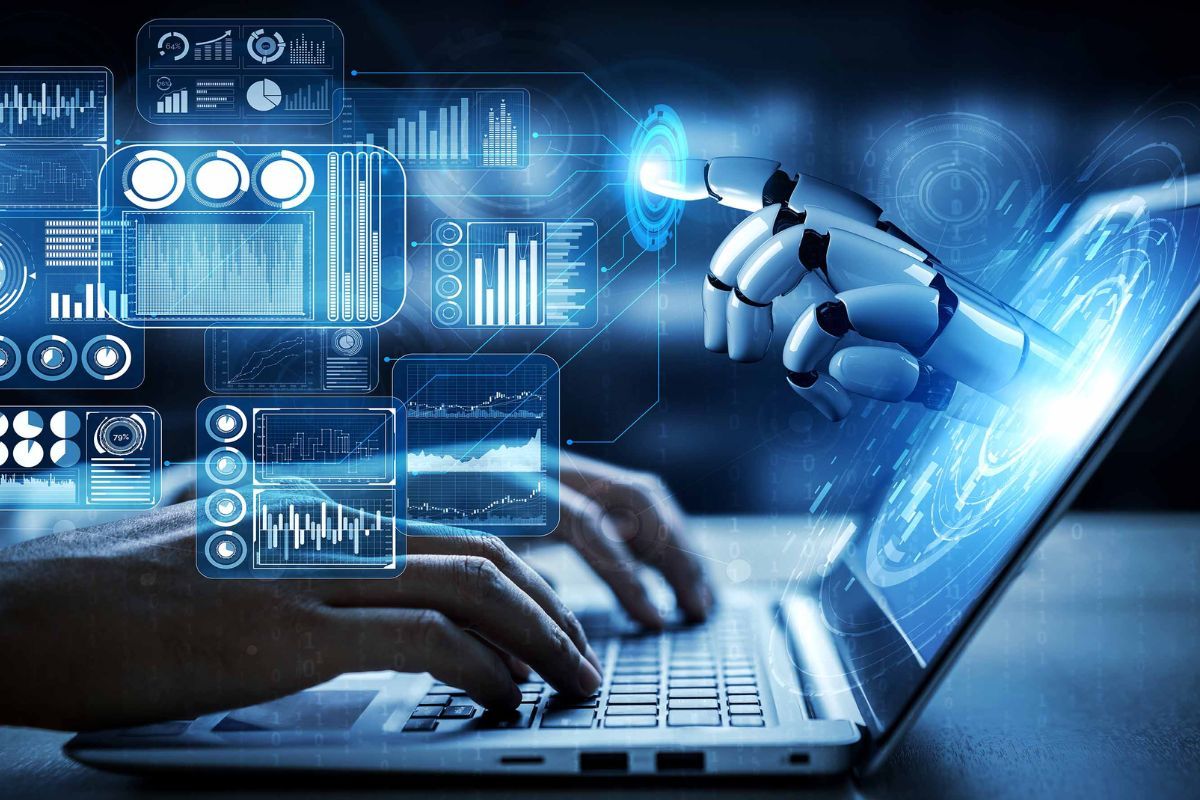Artificial intelligence (AI) has advanced rapidly across numerous industries, transforming the way we work and live, and has emerged as a game-changer in several sectors in recent years. The legal sector is not an exception. AI has made enormous progress in the legal sector in terms of automating various tasks. An increasing number of companies are already utilizing AI to help with a variety of tasks, from research to document review. However, how effective is AI at drafting legal documents?
Let's first explore what Artificial Intelligence is and how it has become a part of the Legal Industry.
What is Artificial Intelligence, and how does it work?

Artificial Intelligence (AI) is the simulation of human intelligence processes by computers, particularly computer systems. Specific applications of AI include expert systems, natural language processing, speech recognition, and machine vision.
In general, AI systems function by consuming enormous quantities of labeled training data, analyzing the data for correlations and patterns, and then using these patterns to forecast future states. As a result of analyzing millions of situations, an image recognition tool can learn to recognize and describe objects in pictures, just as a chatbot that is given examples of text can learn to produce lifelike conversations with people. New and quickly developing generative AI techniques can create realistic text, images, music, and other media.
AI in Legal Industry

AI technology depends on algorithms to learn and process information. This means that in the context of legal documentation, AI can be used to identify patterns in already-written documents and use this information to create new ones. However, it is crucial to remember that artificial intelligence cannot yet replace human lawyers. Although AI can help in the drafting process, the final document still needs to be reviewed and approved by a lawyer.
Up to this point, AI has shown potential in its ability to create simple legal documents, such as contracts and non-disclosure agreements. On the other hand, more complex documents, like wills and trusts, are still best created by human lawyers. This is because AI technology is still in its early stages and does not yet possess the sophistication needed to handle these kinds of documents. As AI technology advances, it is expected that an increasing number of businesses will start using AI to draft legal papers and other tasks, including preparing complicated legal documents.
There are five notable applications of AI for legal purposes:
- Document Automation: AI can assist lawyers in the creation and management of legal documents, including contracts, wills, deeds, and forms, through the use of templates, natural language processing, and data extraction. This can save time, eliminate errors, and enhance consistency.
- Contract Review: Using semantic analysis, machine learning, and data mining, AI can assist lawyers in reviewing and analyzing contracts such as leases, licenses, agreements, and non-disclosure agreements (NDAs). This can assist in identifying risks, obligations, clauses, and anomalies in contracts as well as offer recommendations for improvement or negotiation.
- Legal Research: By utilizing natural language comprehension, information retrieval, and knowledge graphs, AI can assist lawyers with conducting legal research, including locating relevant cases, statutes, regulations, and precedents. This can assist lawyers with acquiring new data, getting answers to legal problems, and keeping up with changes in the law.
- Legal analytics: By utilizing statistical analysis, data visualization, and deep learning, AI can assist lawyers in legal analytics, such as forecasting outcomes, estimating damages, assessing performance, and benchmarking competitors. This can assist lawyers in developing strategies, making informed choices, and getting an advantage over competitors.
- Litigation prediction: AI can help lawyers anticipate the probability of winning or losing a case, the duration of a trial, the amount of settlement or award, and the behaviour of judges or juries by using historical data, probabilistic models, and neural networks. This can assist lawyers in risk assessment, resource optimization, and effective negotiation.
Understanding AI's Role in Drafting Legal Documents

In recent years, artificial intelligence has been rapidly employed to assist individuals in a wide range of tasks, from medical diagnosis to financial analysis. Some legal professionals are currently wondering about the possibility of using AI to examine legal documents for errors and find accurate data quicker.
In the legal area, for example, lawyers must frequently sift through huge piles of papers in order to identify essential information. This is a time-consuming and error-prone method, which is why some believe AI might perform more efficiently. With the use of Natural language Processing (NLP) algorithms, which have been trained on vast amounts of legal data, AI is now able to analyze and comprehend the terminology and concepts used in the legal system. With this ability, AI is able to create drafts of legal documents, including contracts, agreements, and other legal forms, using input or templates. However, there are a number of reasons why AI might not be the best fit for this job. For starters, the context in which a document was created might be significant in understanding its meaning, and AI struggles with this.
Theoretically, AI could be used to scan documents for keywords and highlight anything that seems unusual. Without a doubt, AI can speed up document review, but it's vital to remember that this technology is still in its early stages. As a result, there will probably be certain shortcomings in comparison to the human mind. So, for the time being, it appears that humans will continue to play an essential role in the legal sector.
Advantages of AI in Drafting Legal Documents

1. Efficiency and Time-Saving: Legal papers can be created with AI-powered drafting tools far more quickly than by human lawyers. These technologies have the capacity to quickly and accurately handle significant volumes of data, evaluate it, extract relevant data, and provide comprehensive drafts.
2. Enhanced Accuracy: Human error is inevitable in any document writing process. AI technology reduces the possibility of errors by doing thorough checks, confirming legal references, and spotting discrepancies or mistakes in drafted papers.
3. Consistency and Standardization: AI maintains consistent language and formatting across legal papers, minimizing inconsistencies and the possibility of misunderstanding. To keep documents current, it can also take into account legal precedents and adapt to changes in laws and regulations.
4. Cost-Effectiveness: AI-powered drafting technology can drastically lower the cost of preparing routine documents compared to paying paralegals or attorneys. This allows law firms and legal departments to focus on challenging legal issues which require human expertise and handle resources more effectively.
Limitations and Challenges of AI in Drafting Legal Documents

1. Contextual Understanding: While AI systems are excellent at language processing, they could have trouble understanding subtle contextual cues and complex legal concepts. Drafting legal documents often requires an awareness of specific circumstances, negotiating objectives, and client preferences. Human input is necessary to ensure accuracy and customization.
2. Legal Expertise: AI algorithms are only as good as the training data they get. The standard and relevancy of the training data influences the usefulness of AI in legal writing. Without continuing monitoring and guidance from legal experts, AI can create incomplete or erroneous documents.
3. Ethical Considerations: AI technology presents ethical questions about confidentiality, data security, and privacy. When using AI technologies for drafting purposes, ensuring compliance with legal and ethical norms is essential since legal documents include sensitive information.
4. Lack of Creativity and Judgment: AI algorithms do not exhibit the same creativity and subjectivity in their decision-making as human attorneys. Human assistance may be necessary to attain the best outcomes when creating convincing arguments, recognizing potential problems, and negotiating agreements.
Tips for lawyers to effectively use AI-generated content

1. Familiarize yourself with the technology - Lawyers need to have a basic understanding of AI technology and how it works to use AI-generated legal content effectively.
2. Use AI as a tool, not a replacement - Lawyers should use AI-generated legal content as a tool to help them complete routine tasks more efficiently, not as a replacement for their legal expertise and judgment.
3. Review and edit AI-generated content - AI algorithms may not always generate legal documents that are entirely accurate and compliant with all relevant laws and regulations, so it is important for lawyers to carefully review and edit AI-generated content before using it in real-world legal scenarios.
4. Continuously evaluate the accuracy and quality of AI-generated content - As AI technology continues to evolve, it's essential for lawyers to regularly evaluate the accuracy and quality of AI-generated legal content to ensure that it meets their standards and the standards of their clients.
Conclusion

AI legal document drafting has great potential to manage the workload of attorneys and speed legal procedures while providing efficiency, accuracy, and cost-effectiveness. While AI is excellent at specific components of drafting, it should be seen as a tool that improves rather than completely substituting human expertise. AI may be a useful tool in the legal industry by embracing its advantages and tackling the problems. By utilizing the strengths of both AI and human professionals, the legal industry can maximize efficiency, reduce costs, and deliver higher-quality legal documents to meet the ever-changing needs of clients and society at large.
Also Read:















